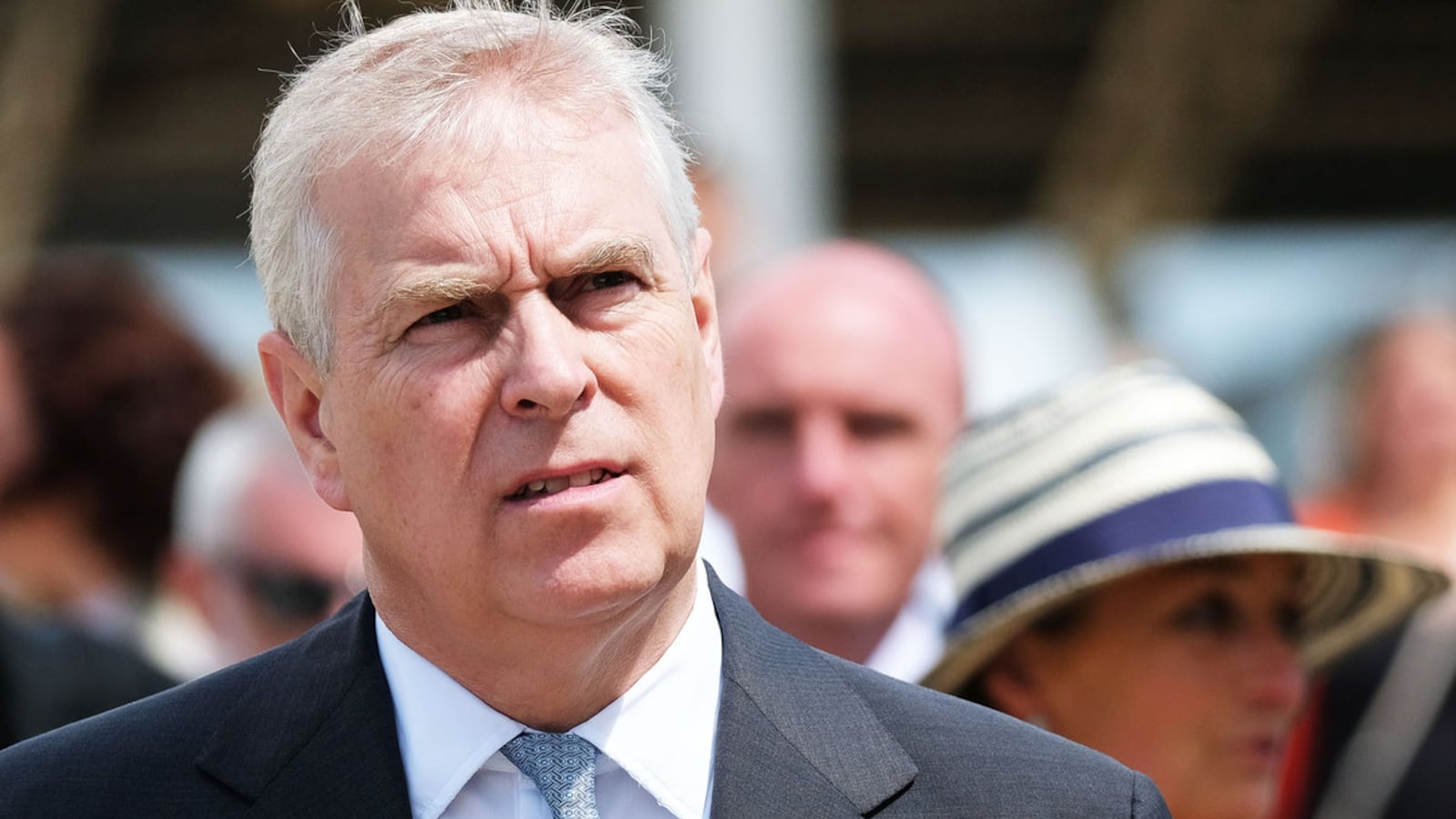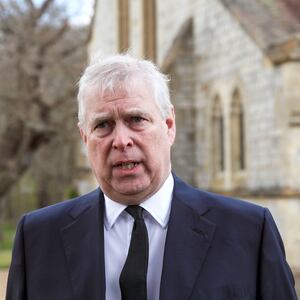Prince Andrew does not have diplomatic immunity, yet may never be the subject of an enforceable civil judgement by American courts, legal experts have told The Daily Beast.
Although experts who spoke to The Daily Beast agreed Andrew would be unlikely to be entitled to avail of diplomatic immunity, this may ultimately prove irrelevant given the difficulties and delays involved in the legal process of holding him to account.
This is despite the fanfare that accompanied last week’s assault on him by the famed American litigator David Boies, on behalf of Virginia Roberts Giuffre, the woman who claims she was flown to London, New York, and the U.S. Virgin Islands to have sex with Andrew when she was 17. She says she was “forced to have sexual intercourse with Prince Andrew against her will.” The suit details offenses including “rape in the first degree.”
Boise argued in a BBC interview that Andrew’s behavior “is not acceptable” and that he “cannot hide behind wealth and power and palace walls.”
However all legal experts agree it is in fact impossible to force Andrew to appear in an American court to defend himself against Giuffre’s civil suit. Indeed, Boies himself has implicitly conceded this very point, saying that if Andrew “thumbs his nose” at the American courts he will incur a “default judgement.”
There may be little for Andrew to fear in such a verdict.
Mark Stephens, of law firm Howard Kennedy (who is currently litigating another high-profile transatlantic case, acting for the family of Harry Dunn, the British motorcyclist who was killed by Anne Sacoolas, the wife of an American intelligence agent who then fled the U.K. claiming diplomatic immunity) said that reaching a default judgement could take as long as twenty years.
Stephens told The Daily Beast: “In legal terms, Andrew’s case is potentially quite a good one. Giuffre would have to prove Andrew knew she had been trafficked to him. That is almost impossible to prove.
“The problem for Andrew is that, in court, win or lose, all the detail of what is alleged to have occurred comes out. Then he is undoubtedly in a worse position than he is now.”
Stephens said that the lawyers on both sides will already know their next moves. “Boies knows that Prince Andrew does not have to partake in civil proceedings. He knows that a default judgement vindicates Giuffre but that the award is not ever going to be enforceable and that there is very little chance of Giuffre recovering any award.”
However, Stephens adds that both sides also know Andrew is potentially the target of a federal investigation on the back of the Ghislaine Maxwell and Jeffrey Epstein investigations.
“Any criminal case has to precede civil matters. So this civil suit will be served, then the case will be stayed until the outcome of the criminal investigation is concluded. That could be one decade, maybe two.”
(Stephens said that there is no requirement for Andrew to be served the papers in person as per legal folklore, and Boise said the same thing in his interview with the BBC.)
Stephens firmly believes there is “no chance of an enforceable judgment against Prince Andrew in a U.S. civil court.” The strategy instead seems to be to “pile on public pressure and opprobrium. There are worse outcomes for Andrew than public opprobrium.”
Buckingham Palace, the British Home Office, and representatives for Prince Andrew all declined to comment on the issue of Andrew’s entitlement to claim diplomatic immunity.
Prince Andrew has consistently denied having sex with Virginia Roberts. In his ill-fated 2019 BBC Newsnight interview, he said: “If you’re a man it is a positive act to have sex with somebody… You have to take some sort of positive action and so therefore if you try to forget it’s very difficult to try and forget a positive action, and I do not remember anything.”
Andrew and his friends have also sought to cast doubt on the provenance of the famous picture of his with his arm around Roberts’s bare midriff. He said that he had “no recollection of that photograph ever being taken.”
Dr Craig Barker, dean of the School of Law and Social Sciences at London’s South Bank University and a recognized global expert on the fraught question of diplomatic immunity, told The Daily Beast that the legal carve-out would not apply to Andrew, in his opinion, as he is not a head of state or senior government official.
The closely allied exemption of “state immunity” would also not apply because it specifically only exempts officials who break local laws in foreign countries while carrying out official acts, and “messing around with a young girl is not an official act.”
Barker said: “I don’t think it’s relevant, there is no immunity question.” He added that there would be no reason to think that Andrew’s private assets would be any harder for the American authorities to seize than any other individual, but said that if the judgement sought to be enforced against “his mother’s assets, or the royal estate, then you might get into a situation where immunity could be an issue.”
Sir Ivor Roberts, a retired career ambassador, told The Daily Beast: “A citizen of a country cannot enjoy diplomatic immunity in his or her home country. And I imagine Prince Andrew has no plans to visit the U.S.” He added that diplomatic immunity does not extend to civil cases.
David Hooper, the celebrated retired British libel lawyer and the author of the seminal work Reputations Under Fire: Winners and Losers in the Libel Business, made a similar point, telling The Daily Beast: “He definitely wouldn’t have diplomatic immunity. He certainly would be very unwise to go to America. If he gets an invitation to Mar-a-Lago he should turn it down.”







